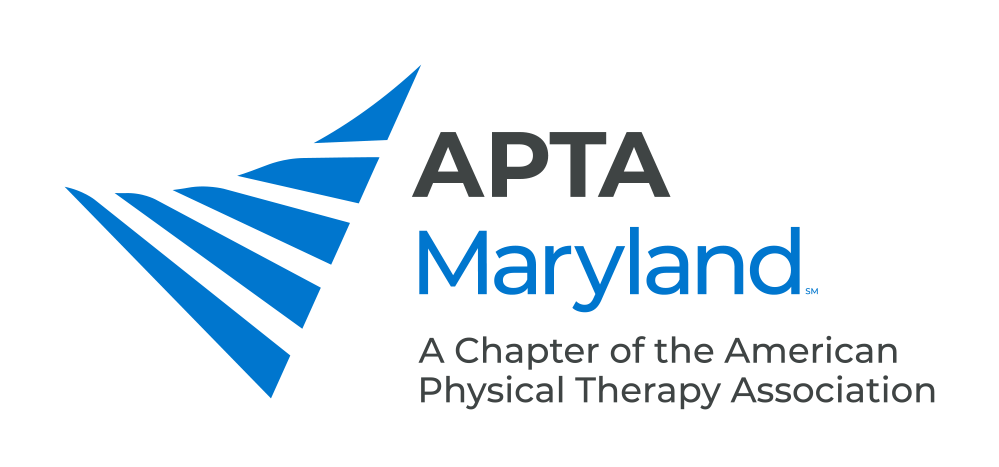Dry Needling
What Physical Therapists need in order to practice Dry Needling in Maryland
PTs must register with the Maryland Board of Examiners OR you cannot practice dry needling in Maryland
To view the status of your application, go the Maryland Board of Physical Therapy Examiners verification of license portal. If you enter in your last name or license number, you will see “Specialty” and if Dry Needling is noted then you have been approved. If nothing is noted, your application may still be under review.
Courses Approved for Dry Needling Registration
Courses must be approved by either FSBPT, APTA, United States Armed Forces, or the APTA Maryland Chapter or they will not count – check with your course educators.
Links for Vendors
- There is NO grandfathering.
- You must have practiced PT for 2 years
- Courses must have an assessment of competency
- If your dry needling course also had an online module, it will count towards the 40 hours of theoretical information ONLY if: a. In real time through electronic means that allow for simultaneous interaction between the instructor and the participants.
-
The instruction required for the 40 hours of theory must be:
(1) In person at a face-to-face session; or
(2) In real time through electronic means that allow for simultaneous interaction between the instructor and the participants. -
At least 40 hours of practical, hands-on instruction in the application and technique of dry needling, under the supervision of a licensed health care practitioner competent in dry needling procedures who has:
(a) Completed the requisite course work under §A(1) of this regulation;
(b) Practiced dry needling for at least 5 years. - If you have specific questions regarding the dry needling regulations, please email them to: Silke Esner or call 443-931-1586.
Dry Needling Regulations
Regulatory Update, Feb. 2, 2022: CMS on Beneficiary Payment for Dry Needling
CMS still isn’t paying for dry needling, but it has provided some guidance on how to successfully bill a beneficiary for the service. APTA continues to advocate for the U.S. Centers for Medicare & Medicaid Services to recognize physical therapists as eligible to bill for dry needling services, but the current status hasn’t changed: Dry needling services delivered by a PT are never covered under Medicare.
However, it’s possible to provide dry needling to Medicare beneficiaries if the beneficiary agrees to pay for the service. This is done through an advance beneficiary notice, or ABN. But as with many things Medicare, it’s not quite that simple: CMS, through its Medicare Administrative Contractors, or MACS, can still deny that the patient should be paying for the service, even though the patient agreed to do so. The key is for providers to supply CMS with the correct codes and information, at the right time, in the right order.
Questions? Contact us at advocacy@apta.org.
Dry Needling Coding and Reimbursement
- CPT® Code 20560 Needle insertion(s) without injection(s), 1-2 muscles, describes the work of dry needling to 1 or 2 muscles *
- CPT ® Code 20561 3 or more muscles, describes the work of dry needling to 3 or more muscles*
CPT codes, descriptions and other data are copyright 2020 American Medical Association. All rights reserved.
*Muscle(s) treated must be identified in the patient health record for both of these services.
These CPT® codes are listed in the Surgery/Musculoskeletal section of CPT 2020. This in no way implies that dry needling is a surgical procedure. Because the AMA CPT reference is related to nomenclature rather than a strict classification system, there may be some procedures appearing in sections other than those where one would expect they be classified. Further, placement is loosely based on where a provider or coder might easily find a code.
Coverage determinations for needle insertions without injection is based on corporate medical policy of each individual carrier/payer.
In spite of over 10 systematic reviews and meta-analyses demonstrating the benefits and efficacy of dry needling, insurance companies, including Medicare, continue to consider dry needling as “an experimental or investigational procedure,” which means that they will not pay anything for the DN codes 20560 (Needle insertion(s) without injection(s), 1 or 2 muscle(s)) and 20561 (Needle insertion(s) without injection(s), 3 or more muscle(s).
Dry Needling Systematic Reviews and Meta-Analyses: Jan Dommerholt, PT, DPT, MPS



